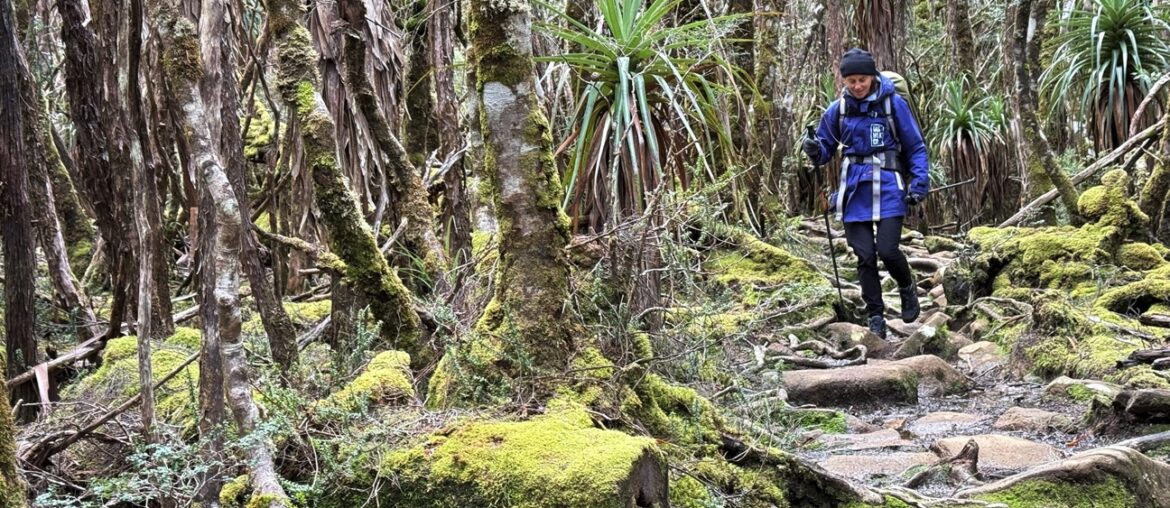Over the past few months, I’ve found a sense of solace in attending synagogue at Emmy Monash, where my father has been living for the last 18 months. He became a resident there after my sisters and I urged my mother to allow him to go into respite care, rather than risk losing both parents as my mother’s health gradually declined due to her being his carer. Dementia is an insidious disease, and we watch helplessly as our once strong, proud, upright, deeply Zionist and intensely Jewish father fades into a shadow of his former self—sedentary, quiet, and unable to engage with us in the way he once did. There are brief, fleeting moments when he still responds to Jewish and Israeli music and prayer, but for the most part, we are left with visits that are heavy with silence and absence.
In the face of these difficult visits, I’ve found comfort in taking my dad to shul on Shabbat mornings. Rabbi Stern’s service has transformed what once felt like a heavy routine into being meaningful and uplifting, particularly when Dad experiences moments of awareness of his surroundings. There’s something deeply soothing about being together in prayer, even when interaction is limited.
As the weeks passed, I have begun reading the weekly Torah portion in English during the layning. It was just before I was about to embark on a long walk as a way of marking 20 years of marriage that the portion for that week, Lech Lecha was read. Unbeknown to me, the timing was perfect as our journey through the Tasmanian wilderness was about to take on extra meaning and significance because of this portion.
The Overland Track in Tasmania is truly magical. The landscape unfolds each day in dramatic vistas—glacial mountains, ancient rainforests, wild rivers, and button grasslands. The weather ranges from torrential rain and strong winds to bright sunshine, and it challenges hikers with everything from scrambling up massive boulders to navigating slippery tree roots, trudging through snow, and crossing rivers.
This trek demands not only physical strength and agility but also mental resolve. Each day requires careful attention to every step, as hikers must constantly assess the best place to put their feet to avoid slipping, falling, or getting soaked.
As the days passed, and with nearly 90 kilometers of terrain to cover, I found myself becoming more efficient in my movements. As we completed each leg of the hike, including extra side trips up Mt Oakleigh and Mt Ossa, Tasmania’s highest mountain, each step became more confident, more natural, allowing me to move faster and with greater ease. But just as importantly, the physical demands of the trek gave way to a quieting of my mind. With every hour of walking, I found my mind freed from the distractions of daily life, creating the mental space to reflect and think more deeply.
In this headspace, my Jewish identity and my love for Israel—nurtured by years of my parents’ proud Zionism—became an overriding force. Many times when I reached a challenging part of the track or simply was walking freely, when I was grateful for the strength in my body and the freedom of the outdoors, my thoughts would turn to our hostages—our brothers and sisters whose freedom has been taken away, whose minds and bodies are confined. It became impossible for me to experience the beauty and freedom of the wilderness without holding them in my heart.
And it was in those moments, when my thoughts were deep and reflective, that the words of the Torah portion Lech Lecha came back to me and the connection between the journey I was on and the values that had been instilled in me by my parents and community became clear.
In the portion, God tells Abraham, “Lech Lecha”—two words that are often translated as “Go forth,” but more literally as “Walk, walk.” This call to walk through the land is not just a physical journey, but a spiritual one as well. And for me in this time and place it added layers of meaning to my walk. The journey I was undertaking, both through the wilderness and within myself, became an opportunity to discover more about who I am and how my Judaism shapes me.
Step by step, I came to understand myself better, to connect more deeply with the spiritual rhythms of my life. The ritual of Shabbat mornings with my dad, paired with days spent in the wild, away from civilization, gave me the space to reflect on forces greater than ourselves—the ways in which we are part of something much bigger.
Now, as I return from that time in the wilderness and reenter the juggle of daily life, I carry that sense of peace with me. And I take comfort in knowing that, in just five days, I will return to synagogue, to Rabbi Stern’s Shabbat service, and to the quiet companionship of my dad. The world feels a little sweeter knowing that Shabbat is always just around the corner.


2 Comments
A moving, reflective piece, Lindy, and a fitting tribute to your dad.
I feel like I was stepping where Lindy was hiking and walking in her footsteps in life also.
What a dedicated, creative and loving daughter.
To connect with so many ways to understand and make a difference in the world.
I found this story extremely well written and it captured her walk and her experience of dementia with her father. Both a step by step journey where one must tread carefully.
My late mother suffered from dementia in her latter years.
Lindy has a huge capacity for empathy and an incredibly capable person and writer. Bravo .